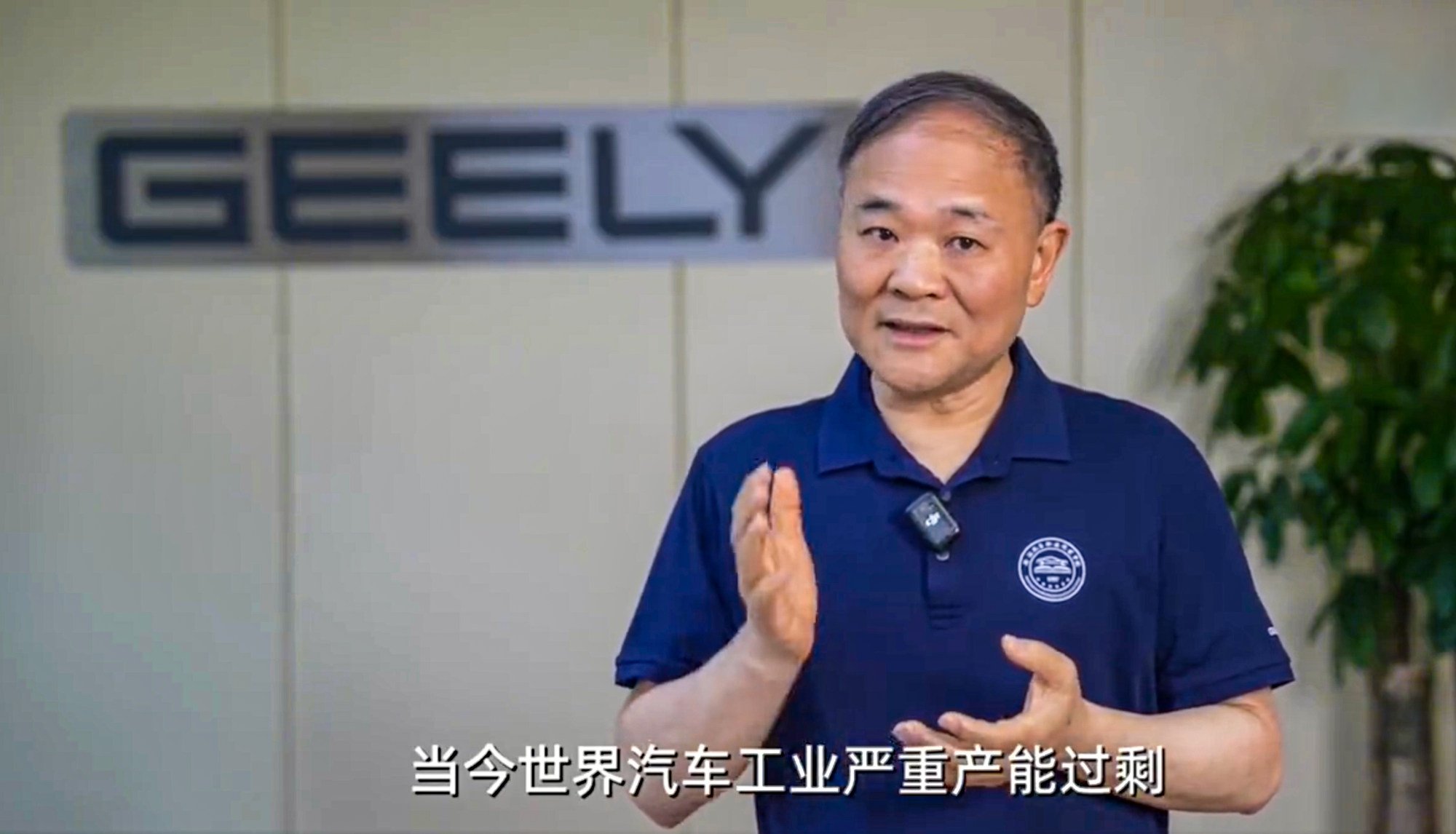Geely Auto , the country's second-biggest automaker, has decided against constructing additional manufacturing facilities due to overcapacity globally. This decision could have widespread effects throughout the industry since many Chinese firms are struggling to achieve profitability.
At the Chongqing Auto Show over the weekend, Chairman Li Shufu stated that the company will not construct excessive production capacity. Instead, they aim to enhance their technological skills with the objective of becoming a major actor in the upcoming era of transportation.
"The worldwide automobile sector is grappling with significant excess capacity issues, therefore, we've made the decision to cease construction of new manufacturing facilities," he stated in an online-posted video snippet.
Are you curious about the most significant issues and global trends? Find out here. SCMP Knowledge Our latest platform features handpicked content including explainers, FAQs, analyses, and infographics, all provided by our prestigious team.
His comments came as carmakers were mired in a brutal price war on the mainland. Leading players such as BYD In late May, both Geely and startup company Leapmotor reduced the prices of 70 vehicle models by up to 20 percent to maintain their market share, as reported by the 21st Century Business Herald.

In April, Chinese automakers offered discounts that increased to a record 16.8 percent, up from 8.3 percent in 2024, as stated in a JPMorgan Chase report released in May.
"Given Geely’s position as one of the nation's leading manufacturers of both gasoline and electric cars, ceasing construction of new plants could encourage domestic competitors to follow suit in order to foster sustainable development within the auto industry," explained Chen Jinzhu, CEO at Shanghai-based consulting firm Mingliang Auto Service. "This reduction in production capacity may help mitigate issues caused by intense price wars since businesses won’t feel pressured to lower vehicle prices just to sell off excess stock," he added.
Li from Geely further mentioned that surplus production capabilities worldwide might be leveraged as the firm pursued its globalization strategy amicably. Earlier in February, Geely announced intentions to utilize the Brazilian facility of French automaker Renault for backing its growth initiatives.
The wealthy entrepreneur also warned that Chinese electric vehicle (EV) manufacturers might forfeit their edge in manufacturing efficiency and cost reduction if they fail to address the dangers posed by overcapacity and sluggish sales effectively.
Geely Auto, which manufactures vehicles under brands including Zeekr Lynx and Galaxy delivered 2.18 million vehicles last year, marking a 32 percent rise compared to 2023. Their electric vehicle sales surged by 92 percent year over year, totaling more than 888,000 units.
The firm's parent entity, Zhejiang Geely Holding Group, led by Li, additionally holds ownership of Volvo Cars and a share in Daimler, the manufacturer of Mercedes-Benz.
Based in Hangzhou, the capital city of eastern China’s Zhejiang Province, Geely Auto announced an underlying net profit of 8.5 billion yuan ($1.2 billion USD) for the year 2024. This represents a significant rise of 52 percent compared to the previous year.
In 2024, EV sales in China made up over 60 percent of all vehicle deliveries, as reported by the China Passenger Car Association.
According to Goldman Sachs, only half of the nation's electric vehicle manufacturing capability, which amounts to 20 million units, was utilized in 2024.
Nick Lai, who leads auto research for the Asia-Pacific region at JPMorgan, suggested that boosting exports might enhance the profit potential of Chinese electric vehicle manufacturers due to larger profit margins abroad.
During the initial four-month period of 2025, electric vehicles made up 33 percent of the nation's overall vehicle exports, as reported by Lai, which marks an increase from approximately 25 percent in the preceding couple of years.
The chairman of the European Union Chamber of Commerce’s Shanghai branch, Carlo Diego D'Andrea, mentioned that there is growing interest in Chinese electric vehicle technologies as well as increased investment from China into Europe.
He stated during a media briefing in Shanghai last week that he wouldn’t be astonished if Europe demands increased localization of their technologies. He expressed his hope that the ongoing discussions between Europe and China would yield positive outcomes and result in more employment opportunities created by Chinese firms.
He further mentioned that European nations were keen on having Chinese automakers relocate their complete supply chains to Europe instead of setting up knock-down assembly plants, wherein crucial parts would be manufactured domestically and then exported abroad.
More Articles from SCMP
Britney Wong excels once more at Sha Tin as Cheval Valiant keeps everyone entertained with its performance.
Malaysian cartoonist pledges to take legal action against Anwar’s administration due to 'travel restrictions'
A delightful existence for the radio host, musician, and educator, Harry Wong
South China Sea: Beijing’s 4 core principles held up as route to peace in disputed waters
The article initially appeared on the South China Morning Post (www.scmp.com), which is the premier source for news coverage of China and Asia.
Copyright © 2025. South ChinaMorning Post Publishers Ltd. All rights reserved.
Post a Comment